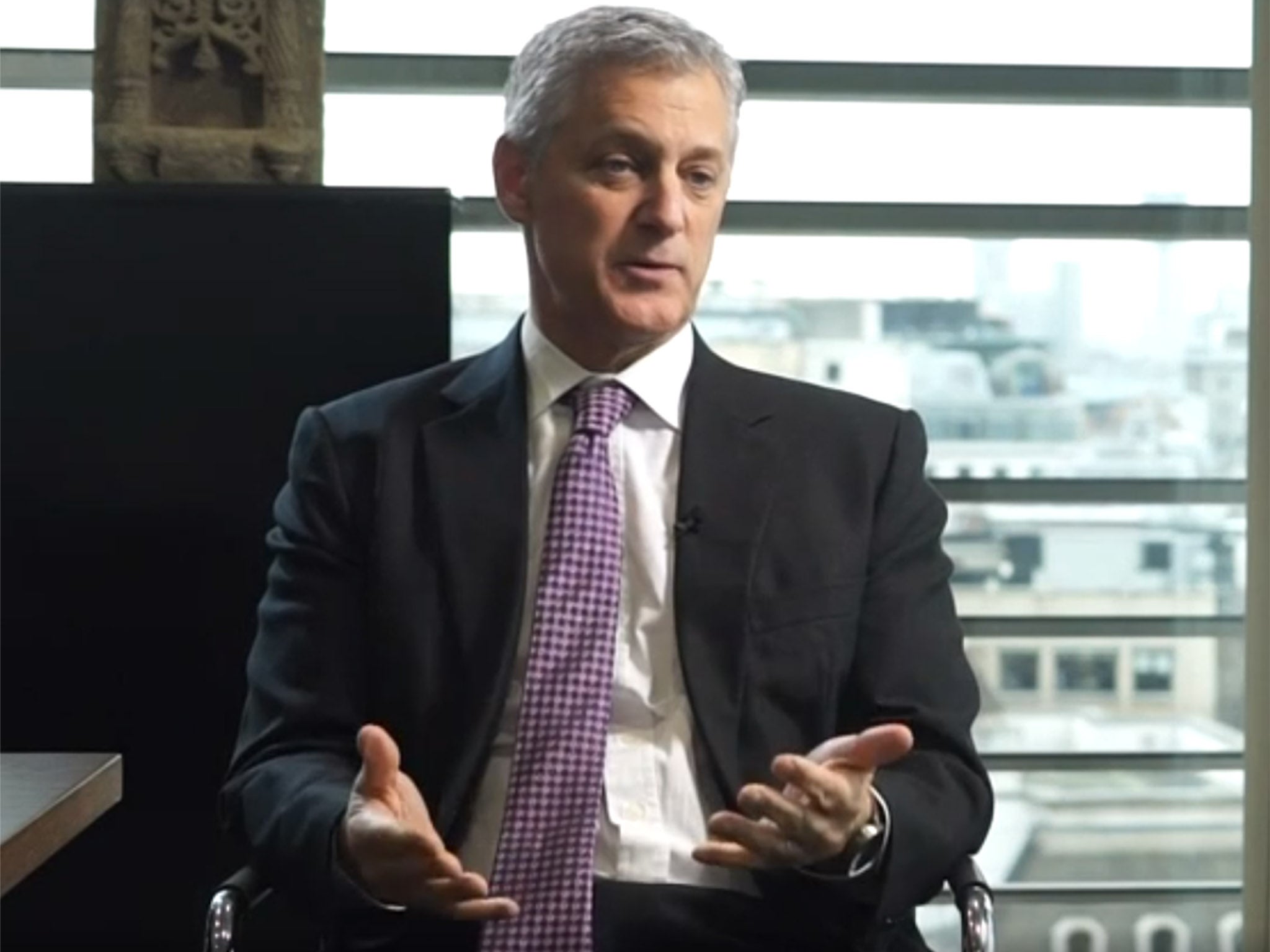Standard Chartered boss Bill Winters attack on his shareholders over their pay rebellion is an astonishing display of hubris
The CEO told the FT investors were "immature" in focussing on his pension arragnements

Your support helps us to tell the story
From reproductive rights to climate change to Big Tech, The Independent is on the ground when the story is developing. Whether it's investigating the financials of Elon Musk's pro-Trump PAC or producing our latest documentary, 'The A Word', which shines a light on the American women fighting for reproductive rights, we know how important it is to parse out the facts from the messaging.
At such a critical moment in US history, we need reporters on the ground. Your donation allows us to keep sending journalists to speak to both sides of the story.
The Independent is trusted by Americans across the entire political spectrum. And unlike many other quality news outlets, we choose not to lock Americans out of our reporting and analysis with paywalls. We believe quality journalism should be available to everyone, paid for by those who can afford it.
Your support makes all the difference.“What were you thinking?”
Someone on the Standard Chartered board needs to put that question to CEO Bill Winters as a matter of urgency after he blasted some of the bank’s investors as “immature” for staging a protest over its pay policy. If they don’t, it should raise troubling questions about the way the emerging markets focussed bank is governed.
But first the background. As with many banks, and indeed many big companies, the debate over pay there has lately focussed on executive pensions.
In May, nearly 40 per cent of the bank’s investors declined to back the bank’s new pay policy. Such a rebellion is far more significant than the votes against advisory remuneration reports we sometimes see because the triennial votes on pay policy actually matter. If they are lost the board has to go back to the drawing board.
What irked shareholders was a proposed change to the pension arrangements of the group’s top executives. Under the old policy, Winters, for example, received a contribution of 40 per cent of his cash salary. Under the new one he gets 20 per cent of his total salary, which includes a share based payment equal to the cash salary. The company refers to this as his “fixed pay allowance”.
We’re not, it should be stated, talking about the single all bells and whistles figure for executive pay that companies (much to their chagrin) have to quote here. It also includes things such as long term incentive schemes and perks. Winters’ number came out at just under £6m last year, some 79 times that of the average employee according to voting advisor Pirc. Needless to say, he’s hardly going hungry.
Anyway, the net effect of the new policy is to change… basically nothing. Winters’ pension stays more or less the same. But the 20 per cent figure sure makes the company look better than the 40 per cent one did at a time when businesses are coming under pressure to align what bosses get with what the rest of their employees get (so far as percentages go).
PS The new policy says future directors will get 10 per cent. PPS Of their "total" salary.
The rebellion that the move provoked led to Winters telling the FT that “picking on individual pension arrangements… and suggesting that there is some big issue there is immature and unhelpful”. To him, certainly.
Given how common such - dare I say immature - game playing by companies when it comes to what they pay their bosses is, it could be viewed as something of a surprise that it provoked such a reaction from investors who rarely rouse themselves to object. Perhaps that’s what provoked the astonishing subsequent reaction from Winters, a sense of “why are they picking on us?”
But it did, and in response the sensible course would have been to issue some anodyne statement promising to listen to shareholders. This happens all the time. Some companies (hello GVC/Ladbrokes) have been issuing statements like that for years without really addressing any of their investors’ concerns.
With his statement, Winters has only served to make himself look both spoiled and entitled, while setting back efforts to restore confidence in British business, which could scarcely been lower as a result of the us and them narrative created by the absurd packages handed over to the likes of him and his colleagues.
He’s also real raised questions about the governance of Stan Chart. Did he not talk to anyone before making those comments? If he did, were his people reluctant to explain how bad this would look for him? And the bank?
Winters is a very able executive. A former number two to JP Morgan’s Jamie Dimon (never a safe position to occupy) he took over Standard Chartered in the wake of the departure of its longtime CEO Peter Sands, whose once bright star had faded along with the bank’s in part, I would argue, through succumbing to hubris.
Winters has shown quite a bit of that in publicly criticising the owners of the company he runs, and thus his bosses. Were anyone other than a CEO to publicly call their bosses “immature” they’d be out of the door faster than a Thompson’s gazelle with a hungry cheetah snapping at its heels.
The best of it is, the Standard Chartered CEO was once on the side of the angels, having served on Sir John Vickers’ Independent Commission on Banking that ushered in a series of important reforms.
It should be noted that cheetahs, like leopards, have spots that don’t change.
Once a banker, always a banker.
Join our commenting forum
Join thought-provoking conversations, follow other Independent readers and see their replies
Comments